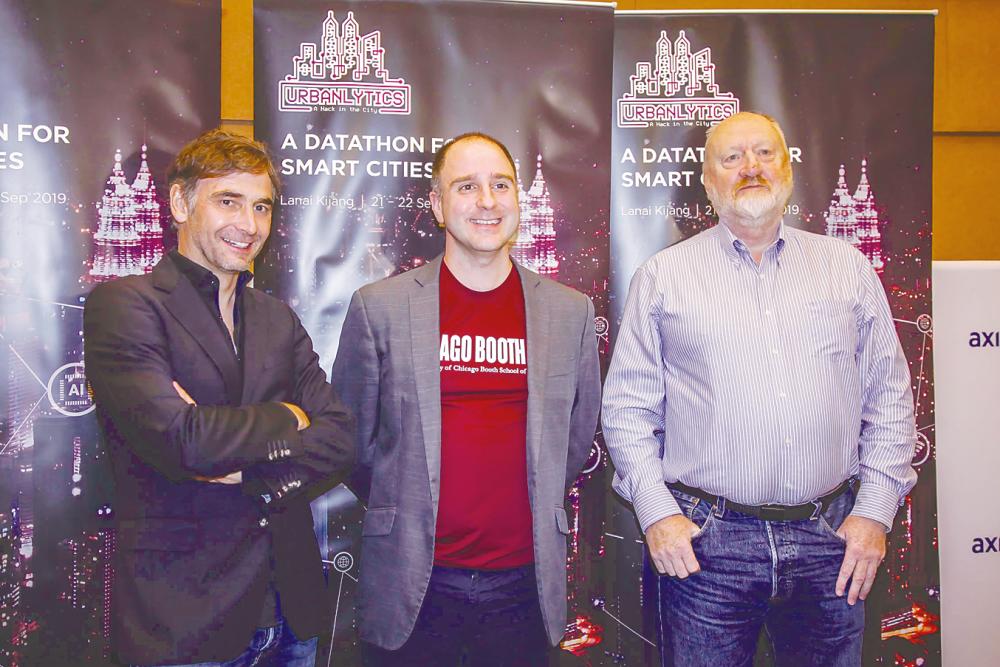KUALA LUMPUR: Data governance is essential for businesses to safeguard their reputation, according to TM Forum big data analytics and customer experience global ambassador Paul Morrisey.
“Data governance is essential to protect the data of people you’re collecting data of; the risk to reputation comes when you don’t facilitate that governance,” he said at the media briefing for the Urbanlytics 2019 Datathon organised by Axiata in collaboration with Cities 4.0 ad Asia School of Business.
TM Forum is the global industry association that drives digital transformation of the communications industry through collaboration.
Although Malaysia is embracing digital technology and Industrial Revolution 4.0 in its quest to transform into a smart city, there is much to be done in terms of data governance.
On Sept 18, Malindo Air released a statement that said it is investigating a recent compromise with the personal data of Malindo Airways passengers stored on “a cloud-based environment”.
Prior to the incident, Astro in August announced that it had discovered the unauthorised access to less than 0.2% of its subscribers’ MyKad data.
With data governance, Morissey explained that it involves a whole set of issues such as accessibility to data, data anonymisation and period of storage for data, among others.
“Having dealt with businesses around the world, data governance is becoming the top agenda in a lot of organisations,“ he said.
He added that other fundamental issues for organisations in dealing with data governance are; how the data is protected; who has the access; whether the data is anonymised; who within the organisation has authorises it; and is there a chief data officer.
With regard to Malaysia’s digital ambitions, Axiata head of analytics centre Pedro Uria Recio views the growth in the number of data professionals as a positive sign, spurred by universities in the country that provide graduate and postgraduate courses in data science.
For Recio, one of the matrices he employs to gauge the sufficient level of talent is by determining the ratio of data scientist per US$1 billion (RM4.2 billion) of GDP.
Malaysia’s ratio is 11 data scientists per US$1 billion of GDP against eight, three and 33 for Thailand, Indonesia and Singapore, respectively.
“If compared to the US or UK of 16 and 18 respectively, it is (Malaysia) not that far,” he said.
Based on that number, Recio said Malaysia is an excellent place to create data-driven businesses as well as an ideal location for larger companies to create data analytics hubs that could serve the rest of the region.













